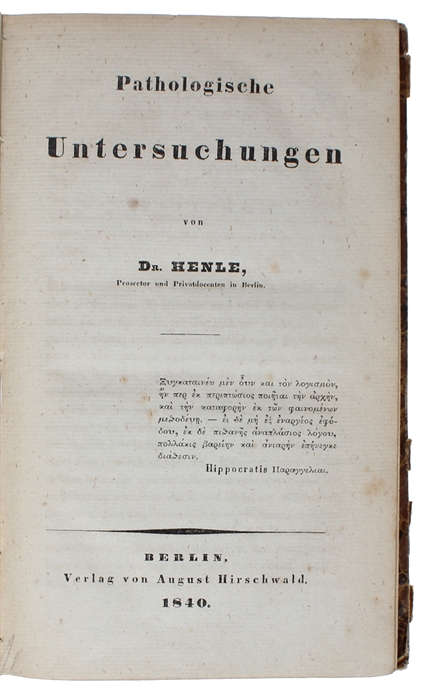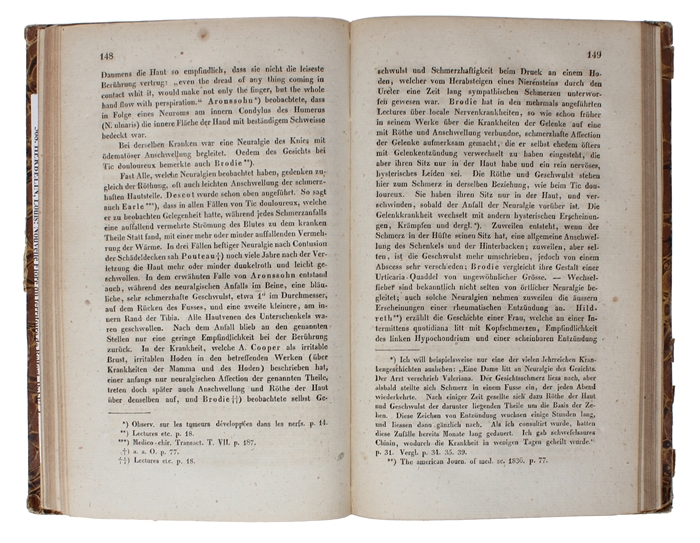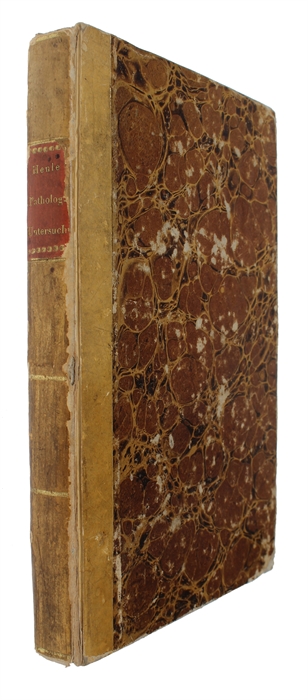HENLE, DR.
Pathologische Untersuchungen.
Berlin, August Hirschwald, 1840.
8vo. In contemporary half calf with gilt lettering to spine. Bookseller label pasted on to pasted down front end-paper. Light wear to extremities, primarily to hindges, otherwise a fine a copy. VI, (2), 274, (2) pp.
First edition of Henle's landmark work in which he "laid down postulates on the aetiological relation of microbes to disease which became fundamentals of bacteriology and which did much to check the reckless speculation which had arisen regarding micro-organism. Koch later developed these postulates" (Garrison-Morton 2533). Henle became one of the greatest histologist and one of the finest anatomists of any area. "His importance to the development of histology is comparable to that of the Renaissance master Andreas Vesalius on gross anatomy." (Encyclopedia Britannica) "The significance of Henle's book lies in its long opening essay 'Von den Miasmen und Contagien,' in which Henle formulated, on the basis of deductive reasoning, his conviction that living organisms were the cause of contagious and infectious diseases. Drawing upon a wide body of work performed by other researchers on the origin of infectious diseases, such as Bassi's recent demonstration of the parasitical nature of muscardine disease of silkworms, Henle argued that infectious agents had to be organic in nature, since they appeared to multiply from the moment of entering the body (a statement supported by the fact that a certain period of incubation usually precedes the outbreak of disease), and only organic life has the property of growth. The fact that infectious agents could be destroyed by heat and disinfectants also suggested their animate nature. Henle assumed that each infectious disease had its own etiology, but realized that such views would be difficult to prove; he therefore proposed that an agent constantly found in association with a particular disease be isolated and tested in its isolated state to see whether it could produce the disease. 'This approach to the proof of the germ theory Henle communicated to his pupil Robert Koch and was, forty years later, to become one of the cornerstones of classical bacteriology under the name of "Koch's postulates" ' Foster "He laid down postulates on the aetiological relation of microbes to disease which became fundamentals of bacteriology." (Norman) Garrison-Morton 2533
Osler 2944
Waller 4336
Norman 1051
Order-nr.: 60193



